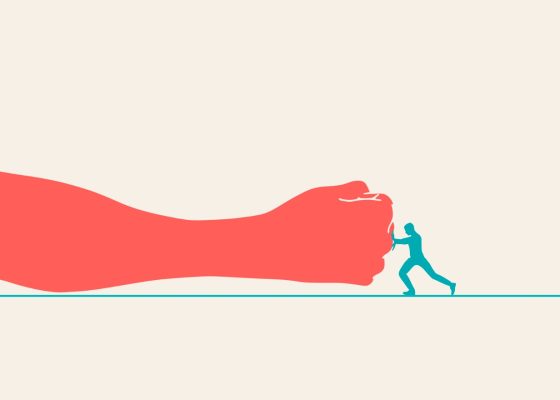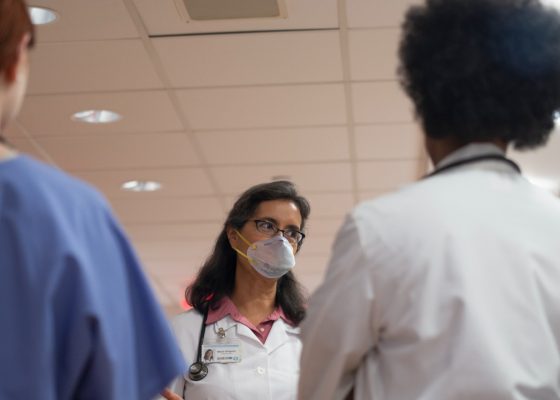Queensland Health says the rise may be down to a ‘growing culture of reporting’. Nevertheless, the news is disturbing for frontline workers.
New Queensland Health data shows a significant increase in occupational violence incidents across the state’s 16 hospital and health services so far in 2024.
According to the Courier Mail, there were 9298 incidents between January and June – the equivalent of 51 per day, up from the 42 per day recorded in 2023, when there was a total of 15,422 incidents in the year.
Metro South and Metro North in Brisbane, and Cairns are the worst three.
One incident in June saw a health security officer at Townsville University Hospital stabbed in the stomach, allegedly by a 69-year-old patient, in the surgical ward. That resulted in a critical incident review which sparked a Queensland Health statewide review into personal protective equipment for security staff. That review won’t be completed until April of 2025.
Townsville HHS CEO Kieran Keyes has approved the use of “mechanical wrist restraint devices” – handcuffs – at TUH, subject to a consultation process, currently ongoing.
The handcuffs are already in use within the Metro North HHS and at the Princess Alexandra Hospital, according to the Courier Mail.
A Queensland Health spokesperson said the increase in incidents was down to “a growing culture of reporting within HHSs”.
Whistleblowers spotlight Latrobe Regional Hospital
Three baby deaths in six weeks have put Traralgon’s Latrobe Regional Hospital under the spotlight.
Anonymous whistleblowers were reported in the Herald Sun as saying an 18-month-old girl with sepsis did not receive lifesaving antibiotics in time, and two newborns have also died.
The toddler arrived at hospital before 2am on 9 September, but the only available doctor, a junior, did not identify or treat her condition correctly.
A senior doctor who arrived “hours later” transferred the child to a Melbourne hospital where she later died.
Although the matter was reported to Safer Care Victoria and an internal review by the hospital found no fault with the care provided, the whistleblowers claim several staff involved were never interviewed and that units within the hospital, including obstetrics, were being run “without qualified staff”.
Both newborn deaths are also under investigation.
A Latrobe hospital spokesman told the media: “In the past two months, three children who received care at Latrobe Regional Health have tragically passed away.
“LRH offers its sincere condolences to those affected by these deaths.
“Providing safe care is LRH’s priority, and we review patient deaths or adverse outcomes in close consultation with Safer Care Victoria.
“As with many regional health services, from time to time LRH faces challenges in attracting staff, however, we are working hard on recruitment and have been successful in onboarding a range of highly qualified practitioners, locally and from overseas.
“In particular, LRH currently has a full complement of specialist obstetricians and paediatricians.”
North West Regional Hospital ruling
Staffing shortages and a hospital-wide bed block led to the death of a 74-year-old woman falling in the emergency department of Tasmania’s North West Regional Hospital, the state coroner has ruled.
On 25 June 2022 the woman was transported by ambulance to the hospital, experiencing a fever, delirium and a possible UTI. She had a history of falls and limited mobility.
After being assessed, the woman was left unsupervised with the bed rails left down. As a result, she fell out of the bed and suffered a right-side femoral neck fracture.
A root cause analysis by the Tasmanian Health Service found the reasons behind the incident were a hospital-wide access block, staff shortages, the unavailability of a hi-lo bed, and not being supervised in the minutes before her fall.
Coroner Olivia McTaggart agreed.
“The failure to lift Mrs Chapman’s bed rails back into place, together with leaving her unsupervised, was perhaps the most significant and preventable cause of Mrs Chapman’s fall,” Ms McTaggart said in giving her report.
“This omission itself may have partly been a product of a high hospital patient load at that time.
“Despite [the patient’s] illnesses, the major cause of her death was the consequences of her fall from the bed in the hospital’s emergency department on the day of her presentation.
“Mrs Chapman presented to hospital with delirium, a history of falls, limited mobility and advanced age.
“Staff were therefore aware that she was at significant risk of falling.
“I recommend that the NWRH revisits the RCA recommendations and considers whether there is a current need to reinforce those recommendations and/or take any additional safety measures in order to prevent falls in the Emergency Department similar to the fall suffered by [the patient],” Ms McTaggart said.
Tasmania’s Department of Health said all five of the RCA’s recommendations had been implemented.
“The department will further review the coroner’s comments to consider if there are any additional safety measures that can be made to prevent falls in the Emergency Department,” said a spokesperson.



